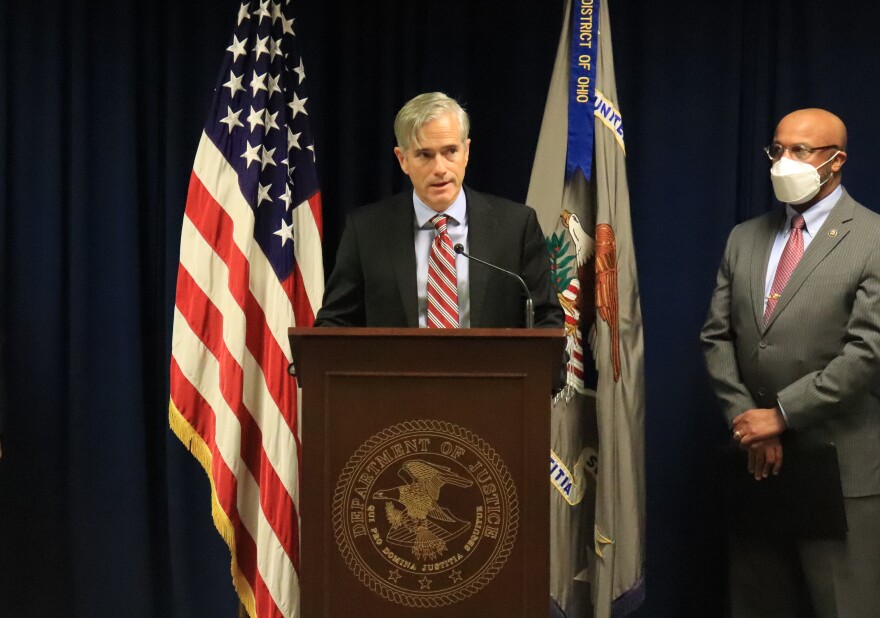To address a sharp uptick of gun violence in Central Ohio, U.S. Attorney David DeVillers is shifting his office’s focus firearm offenses. He’s creating what he terms “hot zones” in the Linden and Hilltop neighborhoods to fast track prosecutions into federal courts.
Columbus has seen more than 125 homicides this year, and the U.S. Attorney hopes pursuing firearm offenses aggressively can reduce that violence.
"We are going to prioritize those resources, those U.S. Attorneys, to prosecute violent crimes and gun crimes specifically in the Linden and Hilltop area,” DeVillers says. “That is to say, we are going to take every single firearm and violent crime—federal firearm and violent crime—that we can take."
To help assist in the effort, a total of five local prosecutors have been tapped to operate as Special Assistant U.S. Attorneys to try the cases in federal court. Three will come from the Franklin County Prosecutor’s Office and two from the Columbus City Attorney’s Office.
DeVillers says potential penalties are much higher in federal court, which he hopes will act as a deterrent, but he acknowledges there are some drawbacks for his office.
“It’s going to affect our cases, I’m not going to lie about it,” he says. “Our white collar attacks, our immigration cases, they’re going to be paused while we do this, but we’re going to do it and we’re going to keep doing it until we see a tap on this violence.”
But Jasmine Ayres, a community organizer in Columbus, is skeptical of the “tough on crime” approach that presumes penalties are a deterrent.
"I understand their frustration,” Ayres says of the coalition of prosecutors. “I can promise you that the people who have lost loved ones to gun violence are frustrated as well. But this is not actually going to prevent crime."
The strategy, according to DeVillers, will rely in large part on 924(c) charges, which take their name from their place in the federal code. These provisions place mandatory minimum sentences on the commission of violent crimes and drug trafficking when a firearm is involved.
City Attorney Zach Klein is quick to point out one class of offense more likely to face federal prosecution now is a charge for possessing a weapon under disability. He notes as an example that a person with a misdemeanor domestic violence charge is barred from possessing a firearm federally and locally, but not under state law.
DeVillers explains possession of a weapon under disability charges are capped at three years in state court, but could see a 10-year sentence in federal court.
Ayres believes the approach is misguided. She says she gets that prosecutors prosecute, but suggests if the office is looking to move around resources, they should put those attorneys to work on more constructive tasks in the neighborhood like talking to middle school and high school students.
“A grieving neighborhood, a grieving community, does not need more enforcement, right?” Ayres says. “Like, they need help. They need counseling. And I would like to see our resources sort of diverted to helping the people who are struggling."
DeVillers says his commitment to prioritizing firearm offenses is indefinite, and will continue until the violence ebbs. He plans to assess the approach’s progress every 90 days.





